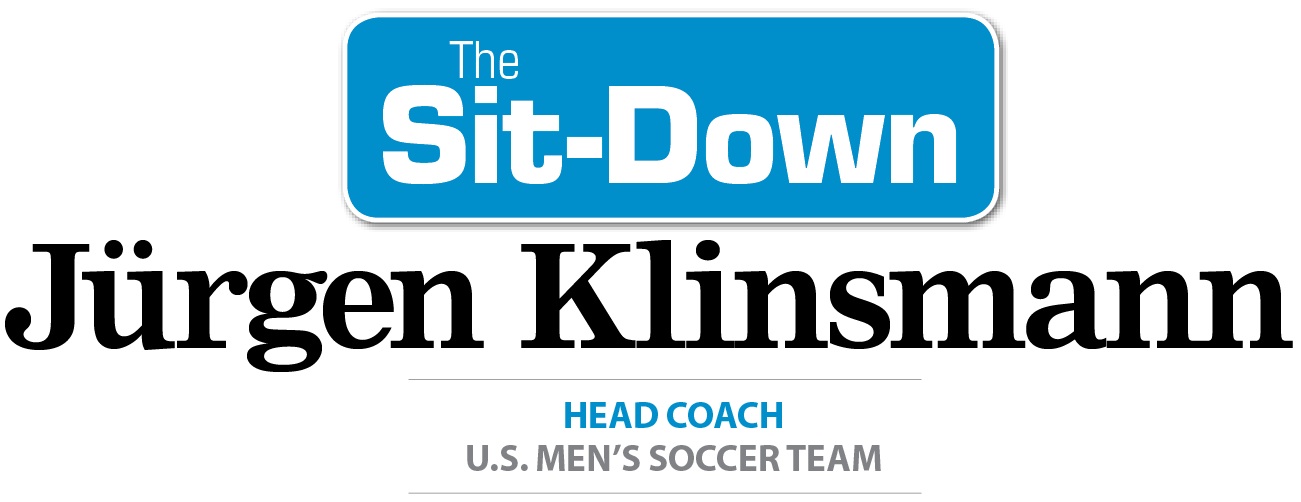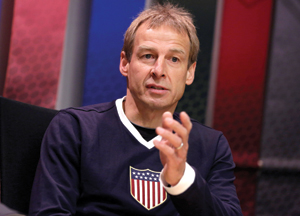
T
he environment in soccer is a very dynamic environment. It’s an environment where there’s change happening every day. If you want to get a program — a national team program or maybe a club — to the next level, you can’t do it the way you’ve done it before.
Soccer is a little bit different than other American sports because the race [for success] is global. I need to know what happens in South America. I need to know what happens in Europe, where the big money is, and even other continents, whether it’s Asia or Africa. I have to be constantly on my toes.
 |
Photo by: AP IMAGES
|
You only grow by taking risks and trying things out and seeing if it plays out well or it doesn’t.
Motivation in our world is coming out of the athlete himself. I can’t motivate an athlete. It’s not my job. You either have that inner drive to get to the next level or you don’t.
I always lived in a way that you never know what happens tomorrow. I am fine with that. I don’t know what happens after the task with the U.S. team.
I had no idea all the different components of a coach’s world. Running a staff. Running topics like the medical side, the science side, the IT side, the scouting world. You suddenly have 10 or 12 or 14 components. As a player, you only have one: Play your next game and focus on it. Suddenly, you see you’re missing a lot.
I admire people like Coach K. He’s a role model in … pulling the best people in different topics and learning from them. That’s why I went to his seminars and I went to meet with Phil Jackson for a day or go to Pete Carroll at USC. I understood after the playing days were over, you have a world to learn.
I’d rather bring in experts and kind of connect those dots between experts. I also have to give them the acknowledgment and empower them to show their expertise. I don’t want to take any credit away from them. It’s more an American way of doing it. It’s definitely not the German way of doing.
You take [criticism]. You evaluate it. You discuss it with your people. You say, is it right or wrong? If it’s something that’s just invented and purposefully done to damage you and be offending, I go after them. I fight back. But usually, I try to understand where that message comes from and why.
A national team has a different chemistry than a club team because a national team only meets [a few times] per year.
Too many takers can take the air out of the whole energy cake — I call it an energy cake — and we are done. Our task is, how can we create an inner circle environment that’s full of support? We’re looking more for givers. Even if we have one or two or three takers, can we compensate with them? If we can, good, because they have certain qualities that make them belong in that group. But if they pull too much energy, I will drop one of the takers even if I lose quality, soccer quality, overall.
Because soccer is so fast-paced, you have to give people also deadlines. Our deadline is the World Cup 2014. If we don’t put in place the exact perfect environment, then I’m probably going to fail. I’m going to lose my job, and the team will fail.
You have to make sure the people with you pick up their pace and learn quickly. If it’s that team administrator, if it’s the media side of it, if it’s the medical side of it, and I see they can’t pick up their pace, then I have to be honest with that person and say, “It’s simply not working.”
Self-motivation and hardworking, that is just the base for a good hire. What you want to see is the person is always curious; curious to see where he can improve himself.
You will never hear me making negative comments in a public way about anybody. … If it’s doable in person, I will meet them.
It is important to make public comments [about players] because they’re publicly driven. The generation today is on Facebook, Twitter, Instagram. They’re far more receptive to anything that comes out there publicly.
Arrogance is when you underestimate your opponents, when you think you’re better than you actually are. You see it as a coach. You see it as a player on the field. You’re going to lose games because the other team is going to smell that. You smell that in soccer. You smell it on the field. When you smell an arrogant player who thinks you can do it easily, you’re going to hit him twice as hard. You just want to give him a message.
Franz Beckenbauer is an amazing example of how charisma and just pure personality can open doors, can calm down very hectic environments, can give people confidence without actually saying a word because of what he achieved in his life. He walks in the room and convinces CEOs to write a check for $10 million of sponsorship and there’s no plan. That’s because of what he did as a player and a coach.
Charisma can achieve anything.






